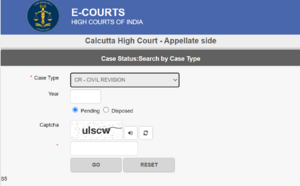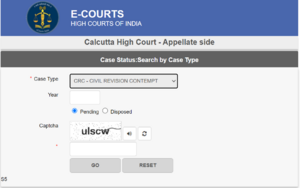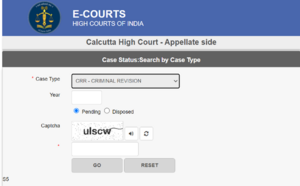Revision
Revision
Revision is the process of re-examination for the purpose of correction or improvement.[1] Revisional power is conferred on a higher court to re-examine the cases decided by a subordinate court. However, unlike appeal, revision is not a statutory right conferred on the party. Rather, the superior court can decide whether a case ought to be admitted for revision or not. Typically, a case is admitted for revision when, certain assumptions are made illegally or the subordinate court acts in excess of its jurisdiction.
However, in its exercise of revisional power the higher court cannot re-appreciate the evidence or upset the finding of fact unless it is perverse. The ultimate object should be to prevent the abuse of power by the court and render justice to the aggrieved party.[2]
Legal Provisions of Revision
The legal provision related to revision are found in the following legislations:
Civil Procedure Code
Section 115 of the Civil Procedure Code contains the provision related to revision. As per the Section, the High Court may call for the record of any case decided by a court subordinate if it appears that the subordinate court has either exercised a jurisdiction not vested in it by law or it has failed to exercise a vested jurisdiction or it has acted in the exercise of its jurisdiction illegally or with material irregularity.
Under this provision, however, the High Court cannot vary or reverse the decree made by the subordinate court if an appeal from the decree lies before the high Court or any other court. Thus, a party can file for revision only when an appeal from the judgement cannot be filed before any other court. Furthermore, the High Court also cannot vary or reverse the order made in the course of proceeding except when if it was made in favour of the party applying for revision would have disposed the suit. Additionally, a revision shall also not stay a suit or other proceeding except if such a suit or proceeding is stayed by the High Court.
Code of Criminal Procedure
Chapter XXX of the Criminal Procedure Code, 1973 provides for the provision related to Reference and Revision. Section 397 of the Criminal Procedure Code provides the High Court or the Session Court the power to call the records of a case decided on by an inferior court for revision in order to satisfy itself of the ‘correctness, legality or propriety of any finding sentence or order, recorded or passed, and as to the regularity of any proceedings’ of the inferior court. When calling for revision, the court can direct the execution of a sentence or order to be suspended and allow the accused to be released on bail. However, this power of revision cannot be exercised over an interlocutory order passed in any proceeding.
Section 401 of the Criminal Procedure Code lays down the revisional power of the High Court. As per the provision, the High Court on its own discretion or on the basis of an application can exercise the powers conferred on a Court of Appeal. However, the High Court cannot under its revisional powers convert an order of acquittal into conviction. Furthermore, such an application cannot be entertained by the High Court if an appeal lies against the said judgement but it has not been filed. However, if the revision was filed before the High Court on the erroneous belief that no appeal lies the High Court may accept the application of revision in the interest of justice.
Post the amendment of the new Criminal Codes, the provision for revision can be found under Section 438 of the Bharatiya Nagarik Suraksha Sanhita, 2023.
Procedure of Filing for a Revision
A proceeding for revision can be initiated either on the filing of an application by the aggrieved party or by the exercise of the suo moto powers of the High Court. In case an application is filed before the High Court, the court has the power to reject the proceeding as revision is not a statutory right of the party. Furthermore, it must also be emphasised that an application for revision can be filed within a period of 90 days from the date of decree or order of the subordinate court.
Case Laws
Amit Kapoor v. Ramesh Chander[3]
The Supreme Court held that the jurisdiction of the court under Section 397 of the Criminal Procedure Code can be exercised in case of a ‘palpable error, non-compliance with the provisions of law, the decision is completely erroneous or where the judicial discretion is exercised arbitrarily.’ However, these grounds under which revision can be filed are not exhaustive but merely indicative.
Girish Kumar Suneja v. CBI[4]
The Court held that three categories of order can be passed by a court namely, final, intermediate and interlocutory. While revision can be filed against the final order of a court, no revision lies against the interlocutory order. For an intermediate order, the court has the power to exercise its revisional jurisdiction as such an order is not an interlocutory order.
Vinay Tyagi v. Irshad Ali[5]
The Supreme Court observed that a revisional jurisdiction is exercised on a ‘question of law.’ However, when an interference is required in relation to the factual circumstances, the court must place reliance on the class of cases which have resulted in a perverse finding. Additionally, the court also observed that the revisional powers of the court cannot be exercised on a mere suspicion or apprehension.
Nawab Shaqafath Ali Khan & ors. Vs. Nawab Imdad Jah Bahadur & ors.[6]
The court held that in the situation where the High Court has the jurisdiction to admit an appeal, revision application or writ petition under Articles 226 and 227 of the Constitution, subject to the fulfilment of other conditions a revisional application or writ petition may be converted into an appeal or vice versa under its inherent powers.
Santosh v. State of UP[7]
The court held that once a revision application is admitted it cannot be dismissed for default. Even if the revisionist is absent the case has to be decided on merits.
Difference between Appeal, Review and Revision
Appeal is the process through which a superior court reconsiders or reviews the decision of the lower court on the basis of a complaint made to the higher court.[1] In Appeal, the aggrieved party pleads before the higher court to reverse the judgement of the lower court on grounds of error or injustice committed by the lower court.
In Review, the same court hears an order or judgment passed by it so as to correct any error apparent on the face of the judgement or the order.
In Revision, a higher court determines the legality and correctness of a judgement provided by the lower court. In civil cases, a Review petition can be filed under Section 115 of the Civil Procedure Code. In criminal matters, Review petitions can be referred under Sections 397 and 401 of the Criminal Procedure Code.
Appearance in Official Databases
High Court
The Website of the Calcutta High Court has the option of Civil Revision, Civil Revision Contempt and Criminal Revision under the category of Case Type within Case Status.
Civil Revision

Civil Revision Contempt

Criminal Revision

National Judicial Data Grid
The National Judicial Data Grid of the High Court also displays the number of Revisions Petitions pending before the Court. The following illustrates the number of Revision cases pending before the Bombay High Court

- ↑ Black’s Law Dictionary, 4th ed, Available at https://heimatundrecht.de/sites/default/files/dokumente/Black%27sLaw4th.pdf
- ↑ [1]Revision (Criminal)
- ↑ Amit Kapoor v. Ramesh Chander, (2012) 9 SCC 460.
- ↑ Girish Kumar Suneja v. CBI, AIR 2017 SC 360.
- ↑ Vinay Tyagi v. Irshad Ali, (2013) 5 SCC 762.
- ↑ Nawab Shaqafath Ali Khan & Ors. v. Nawab Imdad Jah Bahadur & Ors., (2009) 5 SCC 162.
- ↑ Santosh v. State of UP, (2010) 3 SCC (Cri) 307.
